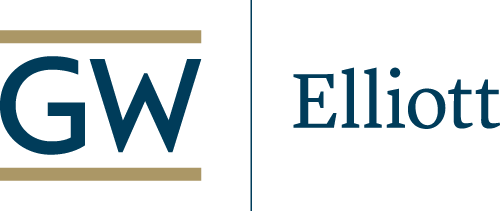 Paul P. Maeser, MA International Economic Policy, #ElliottProud Alumni
Paul P. Maeser, MA International Economic Policy, #ElliottProud Alumni
Paul P. Maeser is a trade economist based in Berlin, Germany. He received his Bachelor’s degree in business studies from the Berlin School of Economics and Law and his Master’s in International Trade & Investment Policy (now International Economic Policy) from The Elliott School of International Affairs. Prior to the Elliott School, Paul worked in European investment banking and served as professional staff on the U.S. House Committee on Financial Services. While pursuing his MA, Paul interned with the European Union Delegation to the United States. After his graduation, he worked as a Senior Consultant with Ernst & Young in New York City. Currently, Paul is Senior Manager in the department for Research, Industrial and Economic policy of the Federation of German Industries (BDI) in Berlin.
Describe your current position and what are your primary responsibilities?
I work as a Senior Manager with the Federation of German Industries (BDI), the nation’s top business association. I cover Germany’s bilateral business relations with several European Union Member States. In particular, I advise the European Commission, national governments, and legislators on the challenges of the Brexit negotiations. Together with my team, I help develop policy proposals on how to best prepare for the upcoming adjustments in the future UK-EU trade relations including fields such as customs, transportation, tax policy, market access, movement of labor, and financial services.
What professional organization, websites, or Elliott School courses, would you recommend for students interested in your field, and why?
A solid insight in trade policy is certainly a strong asset. Therefore, I can recommend Prof. Michael Moore’s class on U.S. Trade Policy as well as his Survey on International Trade. Virtually all policy proposals have a fiscal component which co-determines their feasibility. That is why I still benefit from Prof. Marvin Phaup’s class on Issues in Federal Budgeting at the Trachtenberg School. Also, legislative experience helps a big deal. I am still grateful for having been a German Marshall Fund APSA Congressional Fellow.
My main discovery from all these experiences is that life is all about methodology. Once you have a good grasp of the basics, you can independently acquire a solid understanding of similar cases in other circumstances. I was surprised by how easily I could apply the skills I learned as a graduate student in an international context. This even applies to my Speechwriting class with Bryan Wilkes. To a large extent, I can use the material in another language.
What part of your career do you find most challenging and how do you stay motivated?
First, tough times are part of any career. However, these are often the days where you take the most decisive steps in your life. Here, Admiral William H. McRaven’s legendary commencement speech serves a great reminder.
For economists, in particular, it is often times hard to see or touch the outcome of your efforts. We deliver intangible outputs. Progress in economic policymaking is hard to measure, outcomes depend on a number of variables, and it takes a long time until results are evident. Thus it can be tough to show the impact of your work. Therefore it is important to be aware of what your actual goals are. Chuck Appleby’s leadership class at GW taught me to regularly apply Simon Sinek’s philosophy and “Start with Why”.
Best compliment I’ve received…?
…was brought forward by my teammate when I was leaving my job as Senior Consultant in New York. She remembered the times when we had both just started in our jobs and were assigned to a tough project. Not only did we face high expectations from our client, I was also struggling with my new overall life situation. Nonetheless, I did what I could to support the team around me and to cheer them up when we had to work late in the winter. Wishing me well, she said to me: “When the days were dark, you lifted me up!” I learned that leadership is relatively simple in normal times. But it is when a challenge tests you to your very core that you must make a difference to the team.
Want to connect with current Elliott School students and alumni? Click here to see how!
Find out more about this program by creating a CustomViewbook!
Join us for an information session, RSVP here!
Click here to apply to the Elliott School!
Twitter · Facebook · Instagram
The #ElliottProud profile series is managed by the Elliott School Office of Graduate Admissions and highlights graduate program alumni to answer common questions posed by prospective, incoming, and current students. For more information on this series or to submit questions, e-mail the Office of Graduate Admissions at esiagrad@gwu.edu.
The views expressed by students profiled do not necessarily represent those of organizations they work for, are affiliated with, or the Elliott School of International Affairs.
